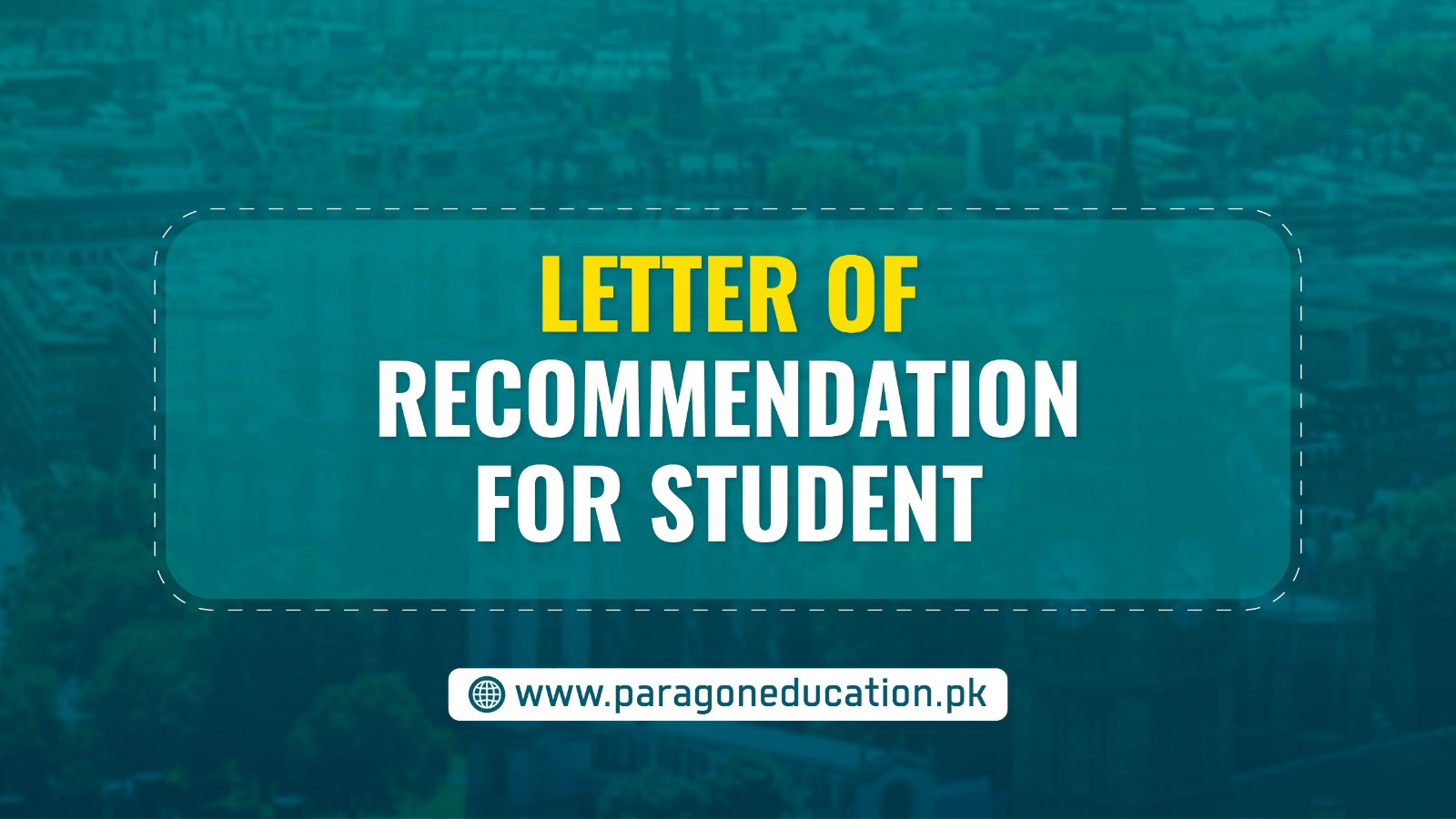Education abroad comes with a lot of perks, but in the meantime, it takes a lot of effort to achieve a study visa. Due to the growing number of applicants each year, it has become increasingly difficult for students to obtain a visa. Nonetheless, by carefully considering the application, you can distinguish yourself from other applicants. A key aspect of the application process is the inclusion of a recommendation letter. In this blog post, we’ll discuss how a letter of recommendation can support your goal of studying overseas.
What is a Letter of Recommendation?
A letter of recommendation, also known as a reference letter or professional recommendation, is a letter that endorses your qualifications, skills, personal and professional attributes, or achievements. It also tells about your work ethic, professionalism, and learning behavior. This letter is written by the individuals who have had the chance to teach, guide, or evaluate the student. It includes your professors, mentors, study counselors, principals, head of the department, research supervisors, coaches, or equivalent. This reference letter helps the relevant department in the visa application know you from a professional individual’s point of view. The better the letter, the more chances you have of success.
How to get a Letter of Recommendation?
The process of getting a letter of recommendation is quite easy. Look for the three or four professional individuals who know you the best. If you have done a thesis or research work in your latest degree, the best option is to reach out to your research supervisor as he is the person who has closely observed you in the past. Alternatively, you can approach any other professional personality in your institution.
The first and most important step in a letter of recommendation is asking if the relevant professional is willing to write a letter of recommendation for you. With that being known, request a letter of recommendation from them. Always remember to sound professional and provide the necessary information. Most applications require two or three reference letters.
Here’s what your professor needs to know to write a letter of recommendation for you
- Your full name with correct spelling and contact information
- Your father/guardian’s name
- Your roll number in their institution
- The degree you have done in their institution
- The courses you have studied/worked in from that specific professor/mentor. Or the research work you have done with them.
- A bit about your interaction with that professor/mentor if you worked on a short-term project/activity
- Purpose of the letter
- Your skills, achievements, and career goals
Also read: Top International Scholarships for Pakistani Students
Benefits of letter of recommendation for students
A recommendation letter serves as evidence of a student’s trustworthiness, dedication, and effort. It showcases the student’s suitability for the role they are seeking. A carefully crafted letter of recommendation can make a student distinguish themselves from numerous other candidates.
-
Provides Personal Endorsement
While an evaluator is analyzing your application, a reference letter serves as a testimonial to your qualifications and supports your eligibility for the position. A written testament not only talks about your credibility but also endorses your skills. By sharing their insights and opinions, the recommender builds a strong case for the student’s potential for success. Adding a personal touch enhances the student’s application, making them easier to connect with and more memorable to admission committees, employers, and scholarship reviewers.
-
Builds Trust
A letter of recommendation establishes credibility by acting as an outside confirmation of a student’s qualifications. It is a show of trust from someone who has observed the student’s development and skills. By recommending the student, the recommender vouches for their abilities and trustworthiness, risking their reputation in the process. This passing on of trust assists in building credibility, enhancing the student’s appeal as a candidate. The endorsement from the recommender connects the student’s capabilities with the possibilities they desire, nurturing a feeling of assurance and self-assurance in the student’s skills.
-
Demonstrates Capability
The reference letter tells stories of how the student achieved their goals, worked well with others, and made a positive impact. By sharing these examples, the recommender proves that the student is competent. This contributes to developing trust and belief in the student’s abilities, enhancing their appeal for various opportunities. The student’s strengths and skills, such as leadership, teamwork, and communication, are highlighted in the letter, showing how they can apply these abilities to excel in their preferred career path.
-
Supports Scholarship Opportunities
A reference letter helps students get partially or fully funded scholarships. It tells the relevant department giving out the scholarships how great the student is. The letter also explains why the student needs the scholarship and how they will utilize it to the best of their potential, thus helping the barrier between expenses and education fade away.
-
Boosts Job Prospects
An excellent letter of recommendation in a student’s profile enhances their academic reputation and catches employers’ attention to the skills they possess. A skillfully crafted reference letter can open up job prospects and provide students with a competitive advantage. It is a strong instrument for starting their career.
-
Shows Passion and Dedication
A reference letter is a direct feedback from one professional to the other professional. It can do wonders that even an impressive statement of purpose cannot. When a reference letter is read by the professor, evaluator, or selection panel, it makes them convinced by the student’s passion and dedication.
-
Increases Visibility
A recommendation letter improves a student’s recognition by universities, employers, and scholarship panels by showcasing their accomplishments and potential for the future. It highlights their skills and character, helping them to be distinct and memorable. This increased visibility enables students to stand out, attract the right people’s attention, and take advantage of potentially overlooked opportunities.
-
Humanizes the Application
In addition to grades and qualifications, a reference letter exposes the individual beyond the application. It emphasizes a student’s beliefs, reasons for action, and objectives, presenting their distinct viewpoint and capacity. This introduces a personal aspect to the app, enhancing its relatability and appeal. By highlighting the student’s traits like empathy, creativity, and resilience, the letter enables admissions officers and hiring managers to establish a stronger emotional connection with them. This individual bond can have a substantial impact on the assessment procedure, distinguishing the student from the rest and ensuring their application is more unforgettable.
Conclusion
In summary, a recommendation letter is a potent asset that can enhance a student’s application, open doors to new possibilities, and highlight their complete capabilities. A skillfully written recommendation letter can make students shine in a tough environment by emphasizing their strengths, accomplishments, and characteristics. A reference letter has the power to leave a strong impact and create opportunities, whether it’s for college admissions, scholarships, or job applications. By utilizing the wisdom and support of teachers, guides, and experts, individuals can make use of a recommendation letter to reach their aspirations and turn their visions into reality.





